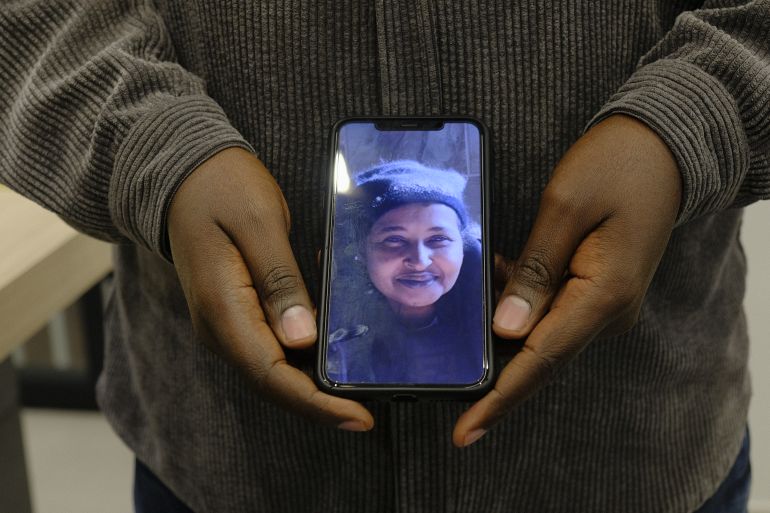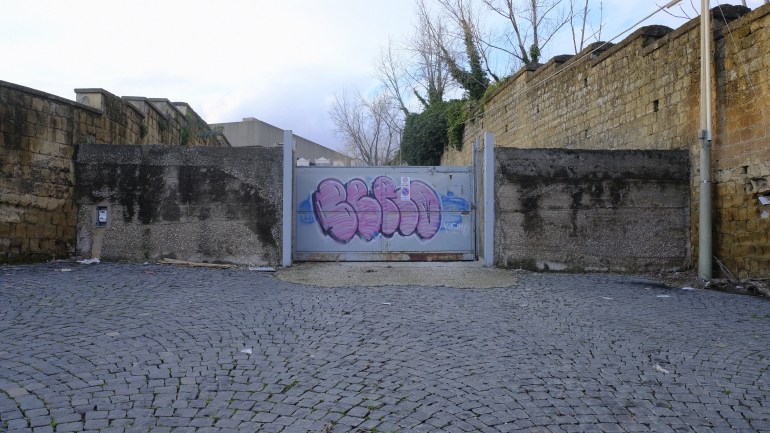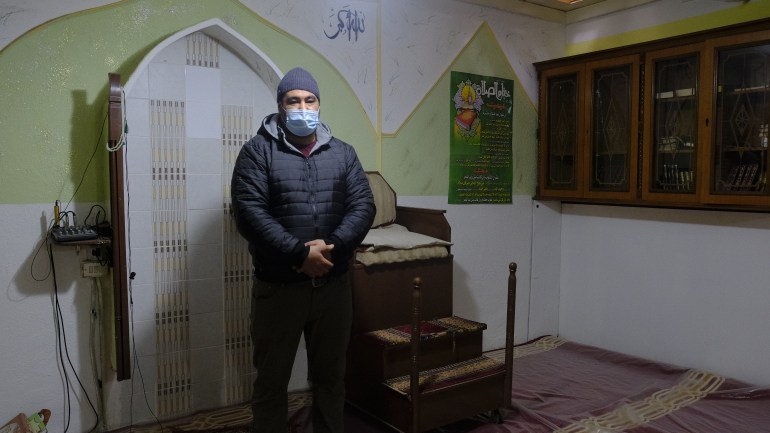In Naples, Muslim families struggle to bury coronavirus victims
Italy’s third-largest city does not have a Muslim cemetery, and with lockdown travel restrictions, transporting bodies has become even more challenging.

Naples, Italy – When Ahmed Aden Mohamed took his mother, Zahra Gassim Alio, to the hospital with knee pain, he never imagined that it would be the last time he saw her alive.
After a series of complications, Alio was exposed to the coronavirus and she died soon after. When he went to the hospital to collect her body, Mohamed realised how complicated it would be to lay her to rest.
Keep reading
list of 4 itemsSri Lanka to allow COVID burials for Muslims after outcry
Muslims in America: A forgotten history
In the UK, Muslims find comfort in receiving vaccines at mosques
Since his city of Naples, in southern Italy, did not have a Muslim cemetery, he was faced with a difficult decision: have his mother’s body cremated, which is forbidden in Islam, or bury her in one of the two closest Muslim cemeteries, both of which are about 150km (93 miles) away.
The lack of a Muslim cemetery in Naples, Italy’s third-largest city, and one with a fast-growing Muslim community, has been a challenge for many families for several years.
But the coronavirus pandemic has made things even harder.

Since 1990, Italian law has allowed for separate spaces in cemeteries for non-Catholics.
But these spaces often do not cater to Muslim burial rules, so members of the faith petition for separate land.
Some families, meanwhile, tend to send their loved ones’ bodies to their ancestral country, but when Italy entered lockdown in March last year, this became impossible as international borders closed.
The lockdown also removed the option of burying people outside their regions in Italy, given domestic travel restrictions.
‘An inviolable right’
Imam Cozzolino, the president of the Islamic Federation of Campania, told Al Jazeera that as the crisis progressed, some cemeteries in neighbouring towns offered extra space for Muslim burials, but almost immediately ran out of space.
“Burial is an inviolable right of any citizen,” Cozzolino said. “The need for an Islamic cemetery has always been there. It blew because of the coronavirus because there was no other place people could bring their loved ones, other than the region they were in.”
In Naples, this push for a Muslim cemetery appeared to have made some progress in 2016, when the city’s newly re-elected mayor, Luigi de Magistris, said a site would be completed by 2017. Space was mapped out in an existing cemetery, next to an area for members of the Jewish community.
“We put the Islamic cemetery next to the Jewish one on purpose,” de Magistris says. “We wanted to show that Naples is a city of brotherhood, rights and peace.”
After a series of delays in 2018 and 2019, the space for the Muslim cemetery was finally cleared last year, but it faced a final hurdle: funding.
Naples was in a financial crisis, so it was difficult to fund projects that fell outside the city’s basic needs.
The city council could designate the spot for the cemetery, and clean it up, but it fell to the Muslim community to fund its construction.
But since Naples does not have a Muslim association, and because the community comprised mostly low-paid workers, money was hard to come by.
“How is this money going to be raised?” Cozzolino said. “The people who attend mosque here are street vendors. They earn only 30 euros [$36] a day. It’s already difficult enough for them to maintain the mosque.”
Burial issues exacerbate grief
Plans for the cemetery are now stuck in bureaucratic limbo, leaving grieving families at a loss.
In the town of Avellino, 55km (34 miles) east of Naples, a woman of Moroccan origin had a stillbirth and she has few options for her child’s burial.
Hassan Hachimi, the vice president of a Muslim cultural centre in a nearby town, said the mother cannot repatriate the body to Morocco because the child did not yet have any documents; the Moroccan consulate rejected her request.
The family is now looking for other cemeteries in nearby regions, a search that is particularly painful because according to the tenets of Islam, the dead must be buried as soon as possible.

In the case of Mohamed’s mother, he has to now travel 140km to Rome, a journey that takes more than two hours, to visit her grave.
Because she died of coronavirus, Mohamed was unable to wash her body, in line with the Muslim practice.
Sitting at his dining room table, he looks for a photo of his mother. But as he scrolls, he happens upon an image of her after she passed, in her coffin.
“Islam in Arabic means submission to God and peace,” Mohamed said. “My mother couldn’t even find peace in her death.”